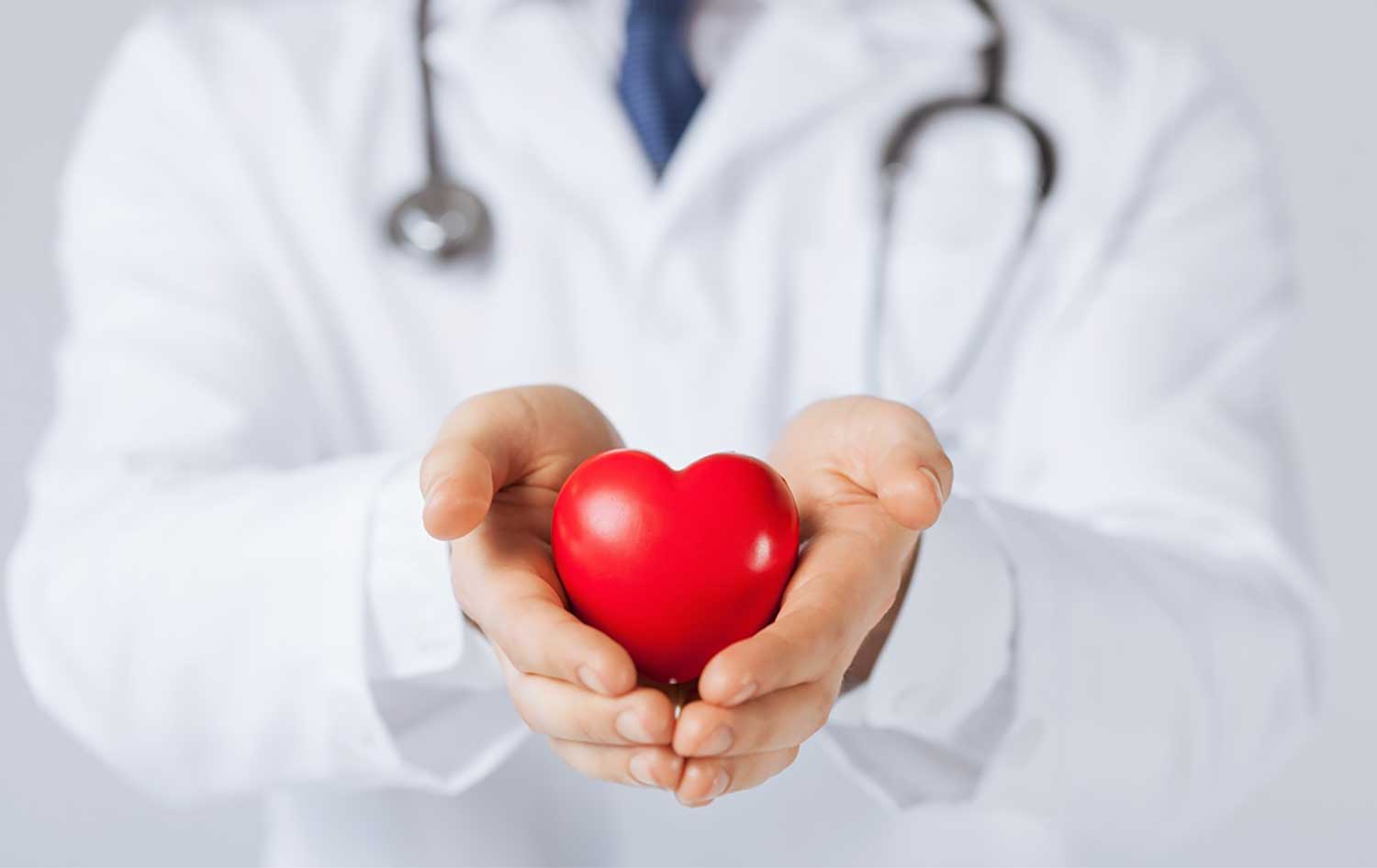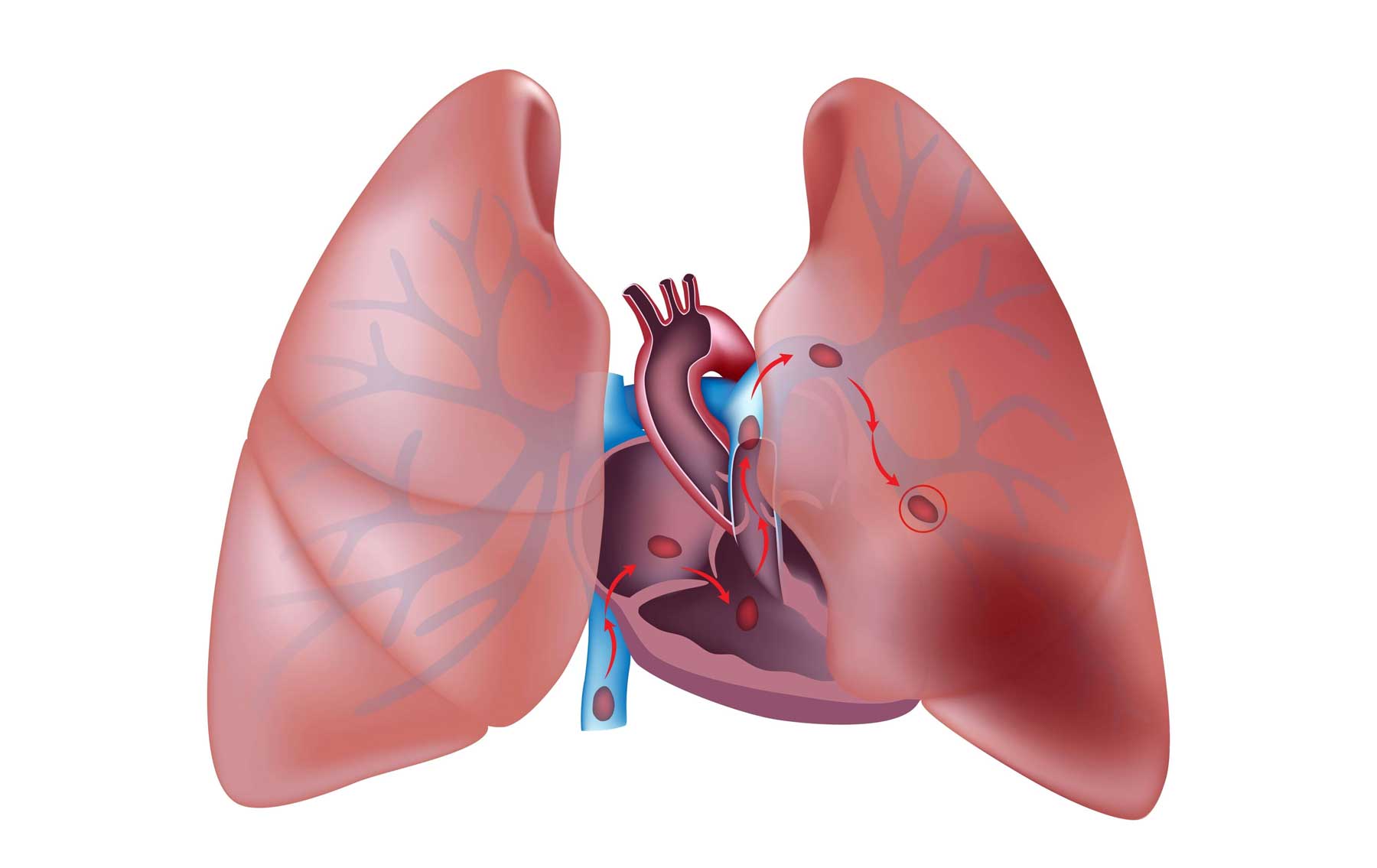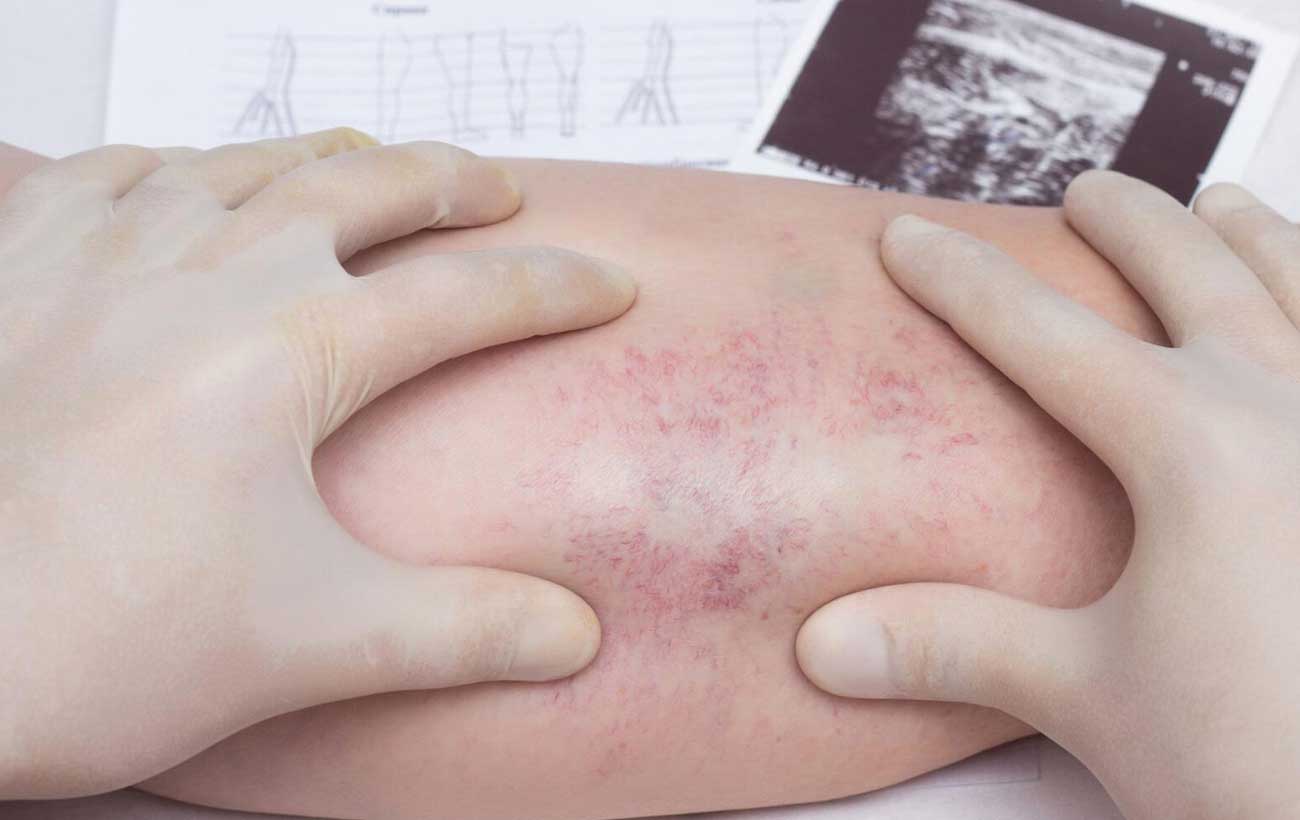Deep Vein Thrombosis Thrombosis is the formation of a blood clot (thrombus), which can partially…

Heart disease Prevention
Although heart disease can begin to develop early in life, symptoms usually do not appear until the disease has caused irreversible damage to the heart and blood vessels. Because of this, the best treatment for heart disease is prevention. Take the following steps to reduce your risks:
- Quit smoking now. Smoking reduces the amount of oxygen in the blood, damages blood vessel walls, and raises the level of LDL (harmful) cholesterol, increasing your risk of heart disease.
- Exercise regularly. Regular, moderate exercise—such as brisk walking, jogging, or swimming—helps you control your weight, improves your cholesterol profile, and lowers your blood pressure. To gain the most benefit, you need to exercise for at least 60 minutes most days of the week.
- Eat a healthy diet. A diet that is low in fat and cholesterol and includes plenty of fresh fruits and vegetables can help lower your risk of heart disease by improving your cholesterol profile and keeping your arteries healthy. It’s especially important to limit your consumption of saturated fat, the potentially harmful kind found mostly in fatty red meat and whole-fat dairy products. For some people, reducing the amount of sodium in the diet can lower blood pressure.
- Know your cholesterol profile. If your total cholesterol is above 200 or if your LDL (harmful) cholesterol is above 100 or your HDL (beneficial) cholesterol is below 60 (for men) or 50 (for women), you need to take steps—such as eating a healthy diet, exercising more, quitting smoking, and losing weight if you are overweight—to improve these numbers. Depending on your health history and heart disease risk factors, your doctor may prescribe a cholesterol-lowering medication.
- Control your blood pressure. High blood pressure is the main risk factor for heart disease. Work with your doctor and follow a healthy lifestyle to help keep your blood pressure at a heart-healthy level.
- Manage your stress. Find positive ways to cope with or reduce stress in your life. If you are not able to relax, try techniques such as deep breathing, meditation, yoga, or biofeedback. It is also important to get enough sleep every day.
- Have regular medical checkups. See your doctor as often as he or she recommends. Your doctor will monitor your blood pressure and may perform screening tests to help detect and treat health problems in their early stages.
- Consume at least 400 micrograms of the B vitamin folic acid every day. Consuming folic acid, along with vitamins B6 and B12, either in your diet or in vitamin supplements, lowers your homocysteine level and may reduce your chances of having a heart attack. Good sources of folic acid include green, leafy vegetables; broccoli; orange juice; eggs; and dried peas and beans. Foods rich in vitamin B6 include bananas, chicken, beef, potatoes, fish, whole grains, and dairy products. Vitamin B12 is found in chicken, beef, fish, eggs, and dairy products.



